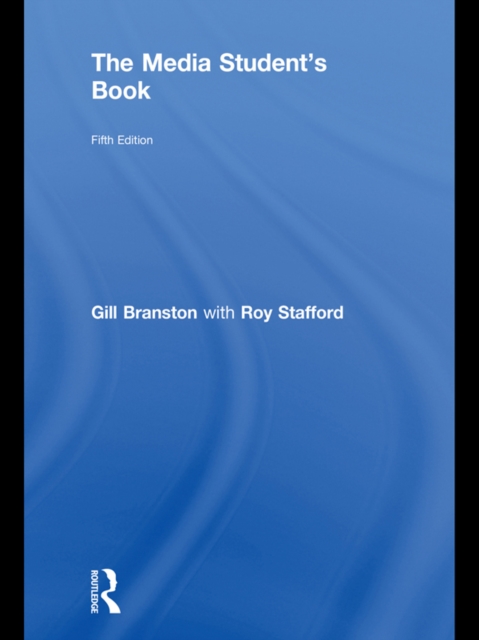
The Media Student's Book PDF
by Gill Branston, Roy Stafford
Description
The Media Student's Book is a comprehensive introduction for students of media studies. It covers all the key topics and provides a detailed, lively and accessible guide to concepts and debates.
Now in its fifth edition, this bestselling textbook has been thoroughly revised, re-ordered and updated, with many very recent examples and expanded coverage of the most important issues currently facing media studies. It is structured in three main parts, addressing key concepts, debates, and research skills, methods and resources. Individual chapters include:
- approaching media texts
- narrative
- genres and other classifications
- representations
- globalisation
- ideologies and discourses
- the business of media
- new media in a new world?
- the future of television
- regulation now
- debating advertising, branding and celebrity
- news and its futures
- documentary and ‘reality’ debates
- from ‘audience’ to ‘users’
- research: skills and methods.
Each chapter includes a range of examples to work with, sometimes as short case studies. They are also supported by separate, longer case studies which include:
- Slumdog Millionaire
- online access for film and music
- CSI and detective fictions
- Let the Right One In and The Orphanage
- PBS, BBC and HBO
- images of migration
- The Age of Stupid and climate change politics.
The authors are experienced in writing, researching and teaching across different levels of undergraduate study, with an awareness of the needs of students. The book is specially designed to be easy and stimulating to use, with:
- a Companion Website with popular chapters from previous editions, extra case studies and further resources for teaching and learning, at: www.mediastudentsbook.com
- margin terms, definitions, photos, references (and even jokes), allied to a comprehensive glossary
- follow-up activities in ‘Explore’ boxes
- suggestions for further reading and online research
- references and examples from a rich range of media and media forms, including advertising, cinema, games, the internet, magazines, newspapers, photography, radio, and television.
Information
-
Download - Immediately Available
- Format:PDF
- Pages:462 pages
- Publisher:Taylor and Francis
- Publication Date:28/05/2010
- Category:
- ISBN:9781136963803
Other Formats
- Paperback from £14.99
- Hardback from £82.89
Information
-
Download - Immediately Available
- Format:PDF
- Pages:462 pages
- Publisher:Taylor and Francis
- Publication Date:28/05/2010
- Category:
- ISBN:9781136963803






